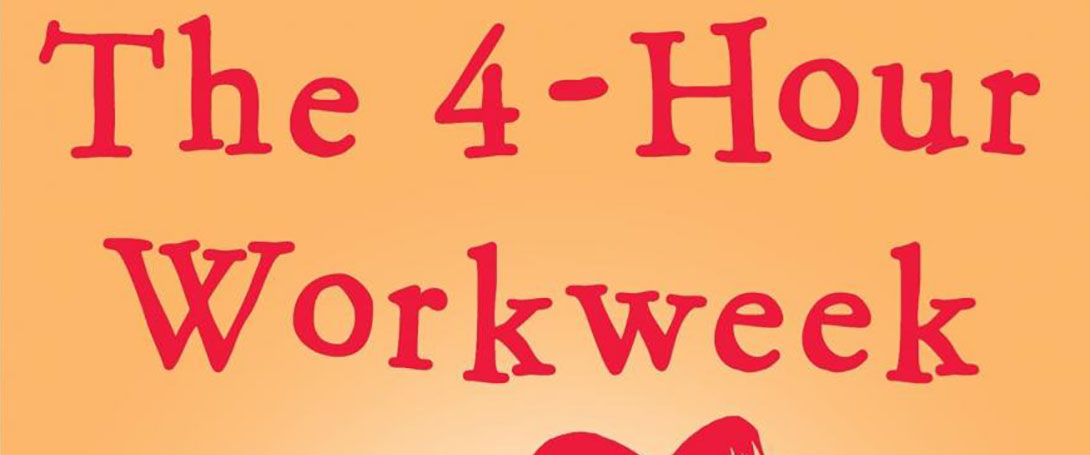We’re all busy, and when you run a business, your tasks can become overwhelming. You…
Is the 4-Hour Workweek Possible?

This week, in our review of productivity principles, we visit The 4-Hour Workweek, which is based on a book by self-help guru Tim Ferriss. It is considered to be the bible of entrepreneurs – especially digital nomads who want to free themselves from their desks.
Like Stephen Covey’s 7 Habits of Highly Effective People, Ferriss’ principle is more of a philosophy than a system like David Allen’s Getting Things Done. It takes a little digging to get to the meat of his time management ideas. Luckily, we’ve done the digging for you.
DEAL
The 4-Hour Workweek is based on four pillars which spell the acronym DEAL. They are:
- Definition
- Elimination
- Automation
- Liberation
Sounds pretty abstract, doesn’t it? Luckily, most of these pillars can be broken down into easily digestible ideas and tasks, which can make you a more productive person.
Definition
Define your dreams and goals and what it will take to reach them. Also determine how much it will cost (in time and money) to get there. This is pretty straightforward advice, but what’s different here is that your dreams and goals may not be work related. Write them down. Be specific.
Elimination
This is the biggie. Cut any distractions that do not contribute to your goals. Ferriss highlights 7 steps to achieve this:
- Make tomorrow’s to-do list before you finish today. When you add an item to this list, ask yourself if the day would be productive if that’s the only thing you completed. It’s like the Marie Kondo of creating to-do lists: pare everything down to the essentials.
- Stop all multitasking immediately. This is self-explanatory. Many people believe that they are multitaskers; they just enjoy distractions. if you focus on one thing, you get it done much quicker.
- Force yourself to end your day at 4 p.m., or end your week on a Thursday. For some on an 8-to-5 schedule, this is impossible, but if you have flex time, consider it. The idea is to learn how to compress your time into productive hours.
- Go on a one-week media fast. This is the second toughest item on this list for most people. Ferriss advocates doing away with television (except for one hour a day), all nonfiction reading, including news and websites, and all social media. He guarantees that the information overload contributes to attention deficit – in essence, losing your focus.
- Check email only twice a day. Whoa. This is impossible for most of us. How do you wait to answer an email from a customer until 3 p.m.? But Ferriss says email is a time-waster; if you limit it to two times a day, you have more swaths of time in which to get things done.
- Never have a meeting without a clear agenda. If someone calls a meeting, ask for an agenda. If there is no agenda, question why there’s a meeting in the first place. This will free up your calendar to – again – get things done.
- Don’t be afraid to hang up a “do not disturb” sign.
Also cut any activities that do not contribute to your goals. Follow the Pareto Principle, which states that 80% of your output comes from only 20% of your input. Many times we are just “busy” doing something but aren’t making progress toward our goals. Don’t let that happen.
Automation
Most of this section of Ferriss’ book deals with how to generate streams of passive income. For many of us, that’s a difficult or impossible task. One of the more intriguing ideas, though, is outsourcing noncritical and basic functions that clutter your life. You can source these out to a virtual assistant (many of these are available on Fiverr for little cost), and focus your time and energy on those items that only you can do.
Liberation
This is more a state than a task. Your ultimate goal is to free yourself from the office by working remotely. Some companies view working remotely as a waste of time, but you can prove your worth by getting a lot done on sick days or when you have to be home when the cable guy comes. The office can be a big distraction.
Is working four hours a week, as the title suggests, really possible? Of course not. But Ferriss drives home the point that it’s time, not money that is our biggest concern. What’s important is not how much you make, but how much effort you put into how much you make. Think about that…
Starting at just $9.95 a month!
LIFE IS CALLING. ALWAYS ANSWER.
Try Ninja Number free for 7 days. Instant activation – no contracts, and all features included!
We guarantee that Ninja Number will help grow your business. If you don’t believe Ninja Number can help grow your business and make more money, just cancel your service and that month’s payment is on us!!




